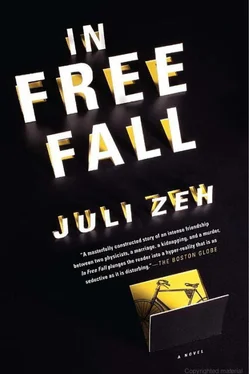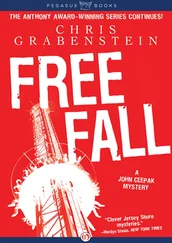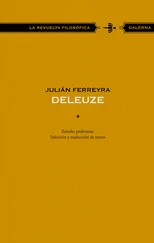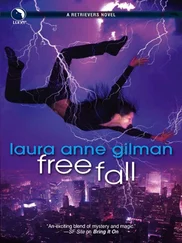“Everett’s Many-Worlds Interpretation as the Foundation for Quantum Cosmology.”
“The Fluctuating Scalar Field, i.e.: The Eternal Return of the Same.”
Schilf makes a concerted effort not to wonder about the sense of this undertaking and whispers encouraging words to himself: Let’s just see, piece of cake, this. He starts reading the first article.
Since his phone call with Rita, he has been plagued by the feeling that he has no time left, and that whatever he does, he is neglecting something else far more important. His method does not work in such a situation. In order to look through things, to lurk and listen and wait for something to rise from the cellar of reality to the surface, he needs one thing above all: inner peace. Now he can only struggle to understand things with the usual tools of the trade, which will bring an average rate of success at best. His startled brain races along the words stretching across the pages like worms, staggers then falls, catches itself in the barbs of a semicomprehensible sentence (“Applied to the cosmos, the quantization machine leads to an assumption of general wave function”), and slides across the slippery ground of the next clause. It stumbles over a familiar phrase (“everything is possible and happens somewhere”) and ends up standing in front of the impenetrable wall of string theory and supersymmetry.
Schilf does not understand a word. He does not have the faintest idea what Sebastian is writing about. The pounding of his headache has turned into hammering. He puts the journal aside and rouses the computer. On the home page of the search engine he discovers a report on the re-arrest of the former chess world champion Kasparov. He feels a little better after reading this short article without any trouble. Filled with hope, he types Sebastian’s name into the gateway to the virtual world.
Two photographs immediately pop up under the heading Circumpolar . There is Sebastian’s boyish, laughing face, next to a striking man whom Schilf would have immediately cast as Mephisto if he were directing a film of Faust . The detective looks at the two men for a long time: the laughter and the silence, the wanting and the waiting, the white king and the black king. A two-headed oracle, the detective thinks. It is some time before he realizes what the Web page is actually offering. You can download an episode of the science program Circumpolar , subtitled “The Clash of the Physicists.” Schilf pulls his chair closer to the screen and clicks on “Watch Now.”
Sebastian and Oskar are seated on protruding chairs in the narrow prison of a small screen. The show’s host is sitting between them in a deliberately casual manner, leaning forward with his elbows on his knees as he introduces the program.
Twenty-first century. Challenges that no one had ever expected. The intersection between science and philosophy.
If the host had been alone onstage, he would have looked like everyone’s picture of the kindly professor: spectacles, beard, and uncut hair. Next to his lofty guests, he simply looks untidy. Oskar lets an arm dangle over his chair’s armrest, and examines the polished tips of his shoes. On the other side, Sebastian is looking straight into the camera with a defiant expression, and he winces when it is his turn to speak. He twists the microphone in his hands for such a long time that the detective feels nervous watching him. Finally, without any preamble whatsoever, Sebastian begins to speak.
“The parallel universe theory rests upon an interpretation of quantum mechanics, according to which a system assumes all circumstances that are possible within the specific probabilities. The elementary particles are the basic building blocks of our world. Their existence determines our existence. That can mean that we and everything visible around us are adopting all states at every moment.”
By his sharp intake of breath while lifting the microphone gently, the host signals that more than three long sentences in a row are unthinkable even for the audience of a public broadcasting station. Sebastian refuses to be thrown off track. The detective nods at him across everything that separates them.
“We can imagine it visually,” Sebastian says. “There is a universe in which Kennedy did not travel to Dallas on that fateful day, and was not shot. And one in which I didn’t have cheesecake on my birthday but chocolate cake.”
There is the sound of grateful laughter in the studio. Only now does the camera swing around to show that the three men on the stage are not alone in the room. The detective realizes that “LIVE” is displayed in tiny letters in a corner of the screen. Transfixed by the notion that the Sebastian onscreen has no idea yet of the reversal of fortune that awaits him, Schilf misses the next few phrases and just catches Sebastian gesturing with his hand that he will stop after his next sentence.
“Everything that is possible happens.”
The audience claps. Sebastian’s fervor makes his statement sound like a promise of salvation. Even the host pretends to clap as he asks Oskar to give his opinion. Oskar has listened to Sebastian with a smile on his face, more amused than mocking, as if he is a grown-up listening to a precocious child.
“What Sebastian has described,” he says, holding the microphone very close to his mouth, in a voice that makes the detective shudder, “is a cozy attempt to circumnavigate God.”
There are murmurs and subdued laughs. Sebastian looks offstage, as if the whole thing suddenly has nothing to do with him.
“You’ll have to explain that,” the host says, when Oskar does not continue.
“It’s quite simple.”
In the dead silence of the studio, Oskar takes a sip of water. It is clear that he is in control of the situation on the stage.
“According to the Many-Worlds Interpretation, a creator never need make a decision. We exist simply because everything that is at all possible exists somewhere.”
Ever since his conversation with Sebastian, the detective has been working on a formulation that he himself does not fully understand: The world is the way it is because there are observers to watch it existing .
Schilf regrets that television programs don’t permit interruptions.
“That is a cheap response to a question of metaphysics,” Oskar says. “Totally unusable as a scientific viewpoint.”
“Why unusable?” the host asks, raising a hand to shush another murmur rising in the audience.
“Because other universes avoid experimental examination.”
Oskar leans back as if he has had the last word for the evening. In the same instant Sebastian bends forward and speaks into the microphone.
“That’s how it is in theoretical physics,” he says. “Even Einstein’s ideas were partly worked out on paper to begin with, and then proven later in experiments.”
“In the words of Einstein himself,” Oskar replies calmly, “‘Only two things are infinite, the universe and human stupidity, and I’m not sure about the universe.’”
“What I’m talking about here,” Sebastian says, “has been described by many reputable physicists: Stephen Hawking, David Deutsch, Dieter Zeh.”
“Then Hawking, Deutsch, and Zeh have just as little an idea of physics,” Oskar says.
As the audience protests, a close-up of Oskar’s laughing face is shown. The arrogant expression has disappeared and he looks like a schoolboy who is delighting in pulling off a successful prank. The camera turns to Sebastian, who is shaking his head and lifting a finger to show that he has something to say. Schilf leans forward so that his nose is practically touching the monitor. Don’t let yourself be wound up by him. Don’t defend anything that you don’t believe in. Tell them that there is no time and space. That Many Worlds and one world are all the same, even if matter is nothing more than an idea in the observer’s thoughts.
Читать дальше












